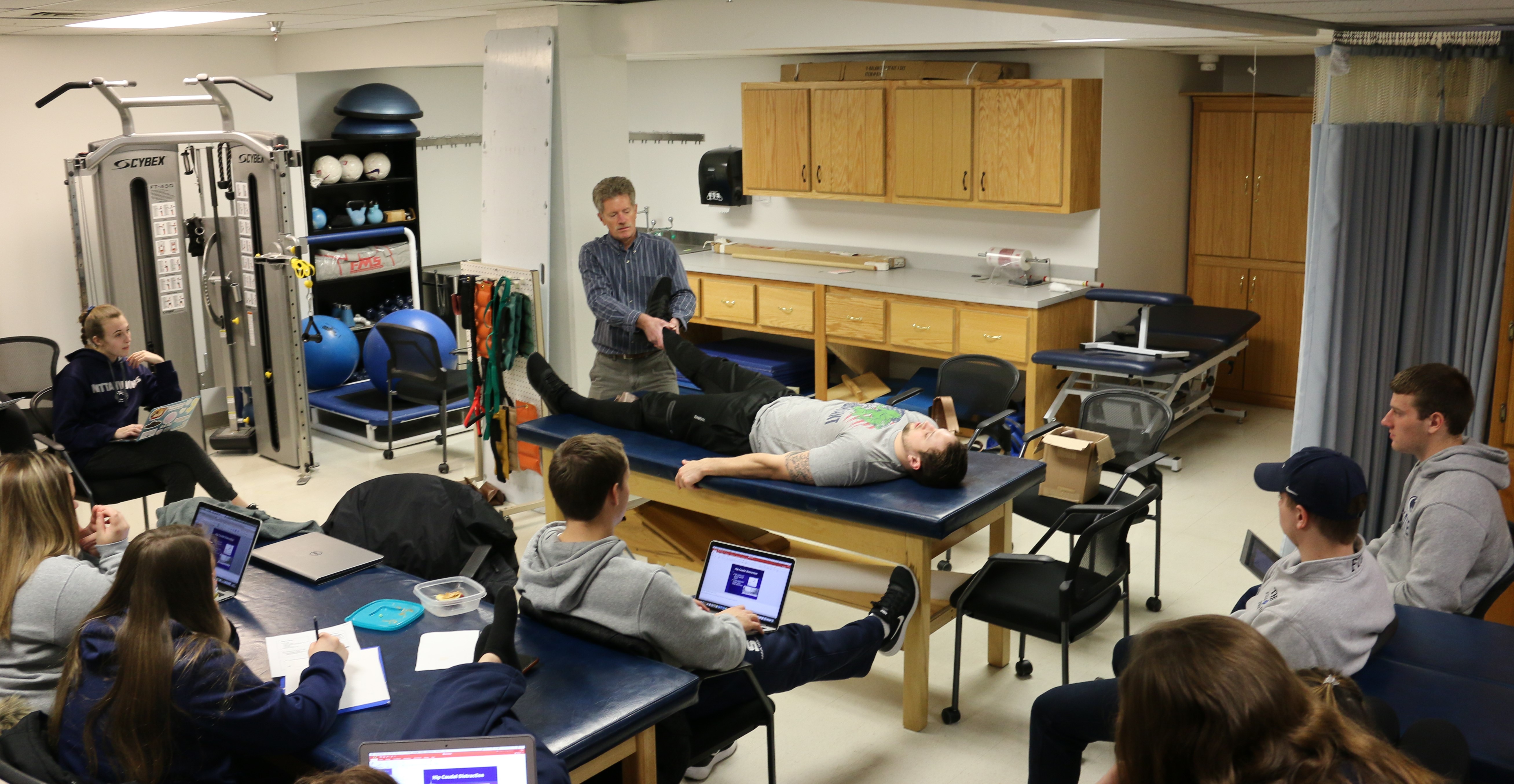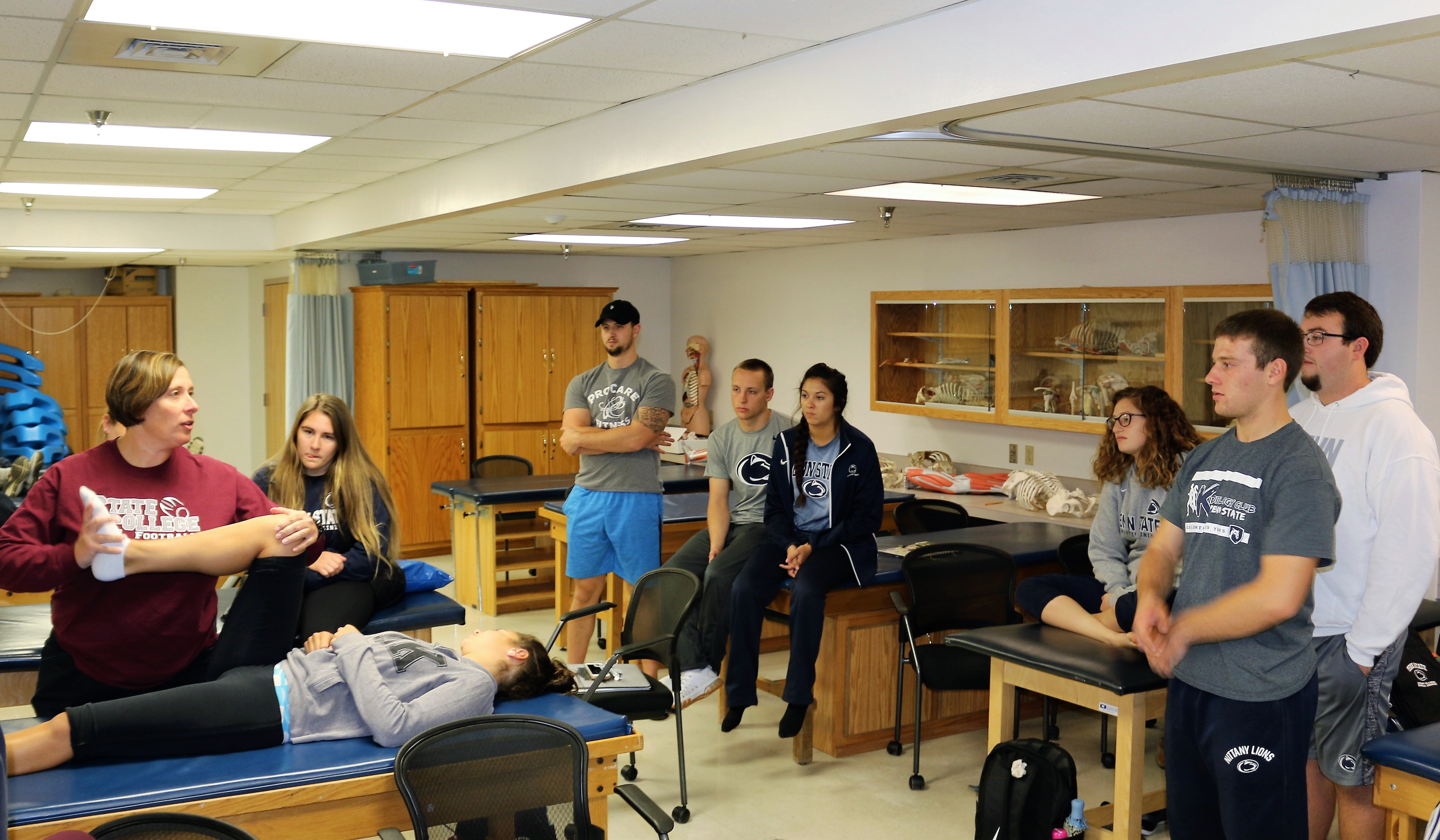Athletic Training Major
Helping Others Heal and Perform

The program offers you a number of clinical education experiences outside of the classroom where you can further your knowledge, skills, and abilities. Our extensive alumni network and strong relationships with various organizations throughout the country can help you to obtain internships and other valuable opportunities that will complement your classroom learning.
Care for Physically Active Populations
The Athletic Training major coursework will prepare you to become a leader in the profession and an integral member of the sports health care team.
The program of study is directed to help you learn to recognize, assess, and manage sport-related injuries and illnesses to return individuals back to play, work, and activities of daily living. With your knowledge of anatomy, physiology, biomechanics, and related fields, you will also be able to craft injury-prevention, and performance-enhancing programs.
You will complete five semesters of clinical education experiences delivering directed care to patients, and clients under the supervision of athletic trainers, and other health care professionals. Examples include clinical rotations with Penn State Intercollegiate Athletics, secondary and intermediate school athletic programs as well as various general medical educational experiences.
The program also provides you with the fundamental knowledge and preparation to aid in obtaining additional certifications, and specializations offered by various professional health care and sports medicine organizations.
Completing the degree program makes you eligible to sit for the national BOC exam to earn the Certified Athletic Trainer (ATC®) professional credential.
Upon passing the BOC exam (typically taken in your final semester), and successfully graduating from the major, you will be eligible to obtain state/commonwealth credentialing through the respective regulatory board. Additional information on securing state/commonwealth credentialing can be found at Professional Credentialing Information
Athletic Training as a Career
As people become more aware of sport-related injuries at a young age, the demand for athletic trainers is expected to increase. The Bureau of Labor Statistics job outlook for athletic trainers can be found here.
Graduates of the program gain employment in a variety of settings with most practicing in universities, colleges, or secondary schools, and others working in sports medicine clinics, hospitals, and professional sports. Further emerging opportunities are available in the performing arts, occupational and industrial settings, armed forces, and various government service agencies.
Opportunities for international employment, and experiences are increasing as the BOC, the Canadian Athletic Therapy Association, and the Athletic Rehabilitation Therapists of Ireland have entered into a mutual recognition agreement. Under the agreement, the national certification bodies for athletic training and athletic therapy in all three countries will recognize each other’s education and certification standards.
Most athletic trainers work full time, and those that work with teams during sporting events may work evenings, or weekends, and travel often.
Career Possibilities

- Professional and collegiate sports
- Secondary and intermediate schools
- Sports medicine clinics
- Hospitals and rehab clinics
- Occupational settings
- Performing arts
- Law enforcement and military
- Physician offices
Limitation on the number of transfer courses used for KINES 300-Level core:
Effective FA15, out of the Kines 300-level core courses (Kines 321, 341 soon to be a new course, 345, 350, 360, and 384), only up to two courses (6 credits) can be transferred in and used towards graduation for the Kinesiology or Athletic Training Majors.
Policy 83-80 limitations on source and time for credit acquisition:
In accordance with Policy 83-80.5, the Department of Kinesiology requires at least 24 credits of Kinesiology courses required for graduation to be taken at the location or in the college or program where the degree is earned. The 24 credits includes the capstone course in the major: Kines 495B for the Movement Science Option; Kines 495F for the Athletic Training Major; and Kines 495C for the Exercise Science Option. Students who are earning the Kinesiology or Athletic Training Major at University Park may not count courses taken at other Penn State Campuses towards this 24 credit minimum.
Athletic Training Contact Information
Athletic Training Major Office
Department of Kinesiology
276 Recreation Building
Pennsylvania State University
University Park, PA 16802
814-863-0442
